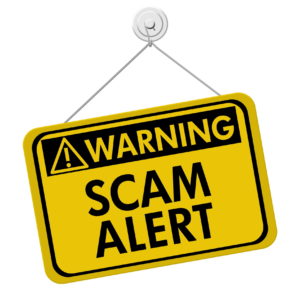

The fact that fraudsters know victims have insurance dollars coming their way makes disaster areas a breeding ground for scams. In UP’s 31 years of assisting with disaster recoveries, we’ve seen many people get taken in by sophisticated scam artists who arrive on the scene and promise expedited, cost-efficient rebuilding help. We’ve seen these scammers join the Chamber of Commerce and gain the trust of residents and local officials, get clients, collect down payments, then disappear. The last thing a disaster victim needs is that nightmare on top of the one they’ve just experienced. UP and our partners do our best to educate consumers and thwart fraud.
No disaster-impacted household (or anyone else, for that matter) needs a vendor submitting a fraudulent estimate or damaging undamaged property to increase the amount of their insurance claim, but those things happen – and they are costing all of us dearly, $80 billion annually, according to the Coalition Against Insurance Fraud. “Don’t pad or exaggerate your claim” is a standard part of UP’s Roadmap to Recovery guidance.
This month, United Policyholders co-presented on post-disaster fraud with the Coalition Against Insurance Fraud and FEMA at the National Association of Insurance Commissioners 2022 Insurance Summit in Kansas City, MO. In addition to educating the audience on preventing scams, UP identified fraudulent adjusting practices by some insurers. Examples include cookie-cutter reports prepared without inspections, measurements that minimize or omit damage, and settlement offers based on material and labor costs that are far below reality in the region.
Here are a few best practices to avoid frauds and scams:
- Educate yourself at www.uphelp.org, and use our links to state contractor licensing agencies.
- The best reference for any professional is a satisfied customer who is willing to speak with you and share pictures of their completed project.
- Never give out your personal information over the phone, (social security number, FEMA number or bank account information).
- Advance deposits are commonly required for professional work, but the amount should be reasonable (normally 20-33%). A request for a large up-front payment is a red flag.
- Only use licensed contractors and verify their license status. Always ask to see a vendor’s business license and insurance or bonding documents before hiring them.
- Don’t allow anyone to rush or pressure you into signing contracts of any kind.
- Before you hire a builder, have an attorney review your contract. Before signing any contract, do your best to understand how and when you can get out of it if necessary. Volunteer attorneys are often available in disaster areas to review contracts free of charge.
- Before you hire professional help with an insurance claim, understand how their fee will impact your available repair/rebuild funds and under what conditions you can cancel the contract or terminate their services and your payment obligation.
For more detailed guidance, read UP’s “Avoiding Frauds and Scams After a Disaster.”
